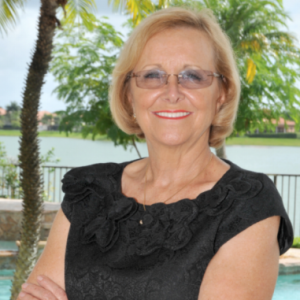 My husband and I, as a team, have been buying and selling residential and commercial property as brokers and investors for over 37 years in Miami and throughout the state of Florida. We know that fear clouds basic principles of sound real estate investment; when investors realize this, they can avoid making mistakes and losing money when buying and selling properties. Purchasers and sellers of real estate also need to examine their own psychological viewpoints in order to avoid making bad real estate deals.
My husband and I, as a team, have been buying and selling residential and commercial property as brokers and investors for over 37 years in Miami and throughout the state of Florida. We know that fear clouds basic principles of sound real estate investment; when investors realize this, they can avoid making mistakes and losing money when buying and selling properties. Purchasers and sellers of real estate also need to examine their own psychological viewpoints in order to avoid making bad real estate deals.
Over the years we have worked with people who invest from a fear-based position. We had a client who wanted to purchase a house in Miami and after two years of looking at over 120 properties and going back two and three times to look at each house, he finally found one he liked.
When it came time to purchase, he said he changed his mind and would continue leasing. When I asked him why he changed his mind, he said he was afraid that if he lost his job, he would not be able to pay his mortgage. He was and still is a very successful dentist. We discussed the facts that his income would have easily supported the mortgage, the chance of his not having a job was inexplicable, and if he had to, he could always sell the house. He said that he knew it sounded crazy but he was too afraid to take the risk. That property has gone up over a million dollars in value from the time he canceled the transaction. Investors need to understand how the quirks of their own personality can block what should be a successful investment.
The principles of real estate investing should be based objectively on logic, psychology and economics. An investor’s opinion is only valid if it is supported by facts: fears, desires and wishful thinking can be an obstacle when seeking profit. Economics requires learning how to first dispassionately value property and then value the cash flow if the property is income producing. It is crucial to use benchmarks such as the history of past closed sale prices as well as comparing return on investment for different kinds of income-producing properties. Furthermore, buying and selling real estate is dangerous when being unaware of the economic conditions which affect local and national real estate markets..
We had another client who was purchasing a class A office building back out of the transaction because he said there was always a risk of all the tenants leaving and he would be stuck with an empty building and a mortgage payment, even though all of the tenants were on long leases and the majority of the tenants were doctors and lawyers, the safest and most reliable kind of tenants a landlord can have. This kind of fear, a fear based on catastrophic expectations, is very common among real estate investors. The decision not to purchase the office building cost this investor millions of dollars in lost opportunity.
Many studies show that fear-based investing is a universal, human trait not influenced by geography or culture. Daniel Kahneman is one of the world’s leading experts in behavioral economics, the study of the underlying motivations of investors from around the world. He shows, in half a century worth of studies, that investors who are fearful (and greedy/unreasonable) are more often than not simply being illogical. In the example above, there was almost no chance of the class A office building, when fully leased to tenants who have excellent credit histories, becoming vacant. Could it become vacant? Yes, but the odds were almost zero. Kahneman says that people are afraid to fly because they know planes can crash. But they might not be so afraid if they knew what the odds were: A person would have to fly every day seven days a week for four million years before he or she was involved in a plane crash.
If there is one salient lesson to be learned from the business of real estate, it is that taking a lot of time to learn the art and science of the business is well worth it. Anything less can be very upsetting.
by Doris J. Parham, PA, is a broker-associate at Coldwell Banker Real Estate.
